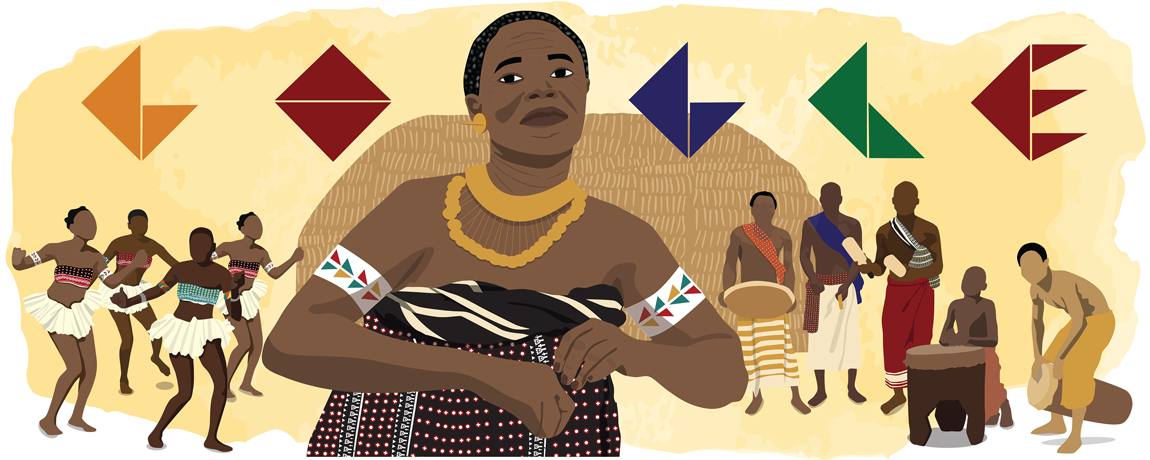
Photo credit: Google
Mekatilili Wa Menza was a Kenyan independence activist who led the Giriama people against the colonial administration of Kenya between 1912 and 1915. She was born in the 18 40s in Mutsara wa Tsatsu Ganzu village, Kilifi county. She was the only girl in the family with four brothers (Nzai, Hare, Kithi and Mwarndu).
Her birth name was Myanzi wa Menza. She got married to Dyeka Wa Duka, they had a son Katilili, hence her name Mekatilili meaning mother of Katilili. However, she became a widow at an early age after the passing on of her husband.
One of her brothers, Mwarandu, was captured by the Arab slave traders when she accompanied them to the market. The incident reminded her of Mepoho's prophesy about the coming of strange people who had hair like sisal fibres and those who would erode the Giriama traditions. The prophecy came to pass when the Imperial British East Africa started building the railway.
The threatening of the sovereignty and freedom of the Giriama people with forced labour and taxation compelled Mekatilili to organize her people against colonial control. She used to call for meetings with the Kifudu dance, a Giriama funeral dance, at which she would encourage her people to resist the British.
She met Wanje wa Mwadori Kola, a notable traditional medicine man, and they became allies. He helped organize a large meeting at Kaya Fungo where they administered the deadliest oaths; the mukushekushe among the women and Fisi among the men. It was for them to vow to not cooperate with the British in any form whatsoever or die. Together, they went to war with their courage and trust to gain freedom.
British administrator Arthur Champion held a meeting at Chakama Kwa Hawe Wanje to encourage the Girirama youth to join the British army and participate in the first World War. Mekatilili attended the meeting carrying a hen and chicks. She challenged the administrator to snatch one of the chicks. She did this to demonstrate what would happen if he took any of the Giriama youth away. The angry hen pocked him humiliating him in public. He shot the mother hen and Mekatilili responded with a slap. His bodyguard responded by firing on a group of youth, killing them. This led to the unsuccessful Giriama Uprising, known locally as kondo ya chembe translated as Champion's war.
Mekatilili and Wanje wa Mwadori were arrested and taken to prison in Western Kenya. They escaped and trekked about 700km through the dangerous forests, back to Giriama to continue the fight right where she had stopped. This instilled fear in the colonial master and she was recaptured but after much resistance in which her people were shot and their houses burnt. She was sent to Kismayu, Somalia where she escaped again under unclear circumstances. By this time the British were busy with the first World War and left her alone.
She died in 1924 and was buried in Bungale, Magarini Constituency, Malindi. Even in death, she is celebrated for relentlessly fighting for the freedom and rights of her people. The Mekatilili wa Menza cultural festival is held annually in Malindi in her honour. On August 9, 2020, Google also celebrated her with a Google Doodle for participating in a fight for social change.
ADDITIONAL RESOURCES
Reinventing Africa's national heroes: The case of Mekatilili, a Kenyan popular heroin
Mekatilili, prophetess of the 1913 Giriama revolt
Celebrating Mekatilili wa Menza
Join the Lughayangu Community!

